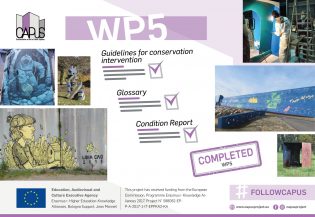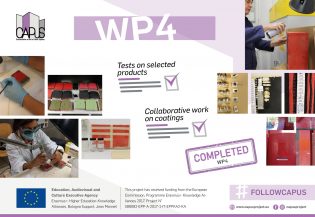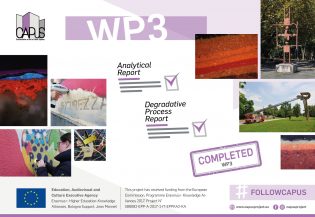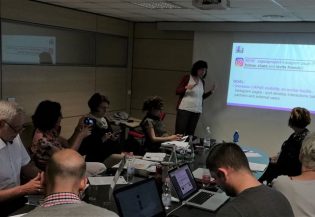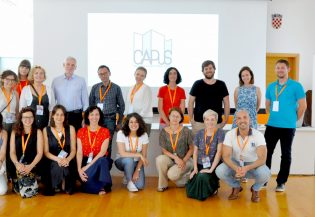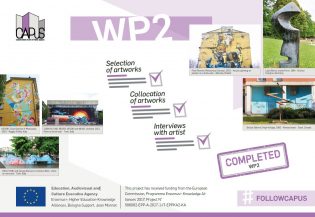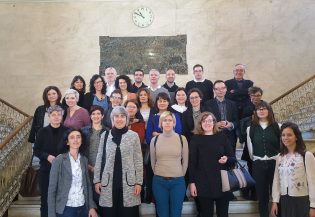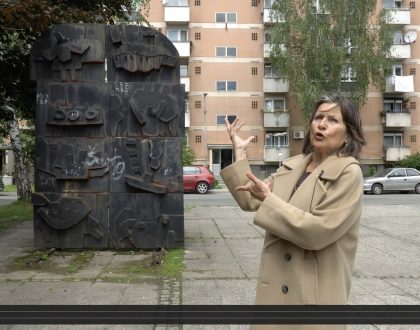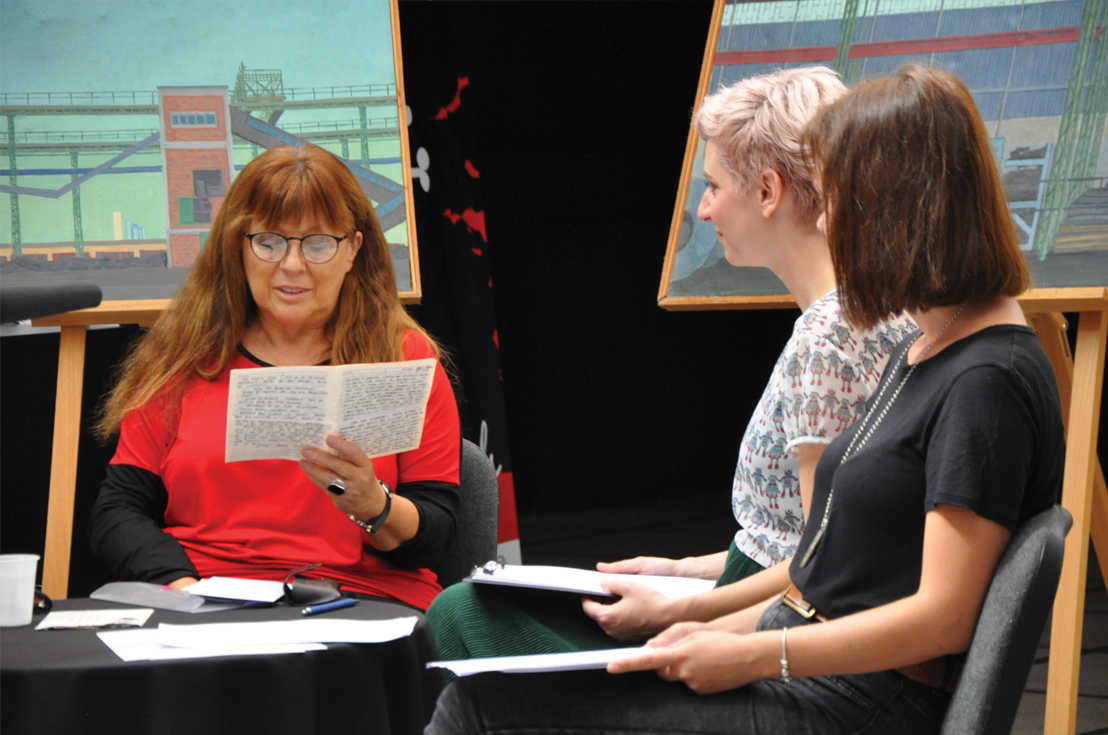
As a part of the CAPuS project, in June 2018 Sagita Mirjam Sunara and Tina Tomšič (University of Split) interviewed Jelena Trpković, an artist who participated in the Sisak Steelworks Fine Artists’ Colony in 1980. Although Trpković did not produce a sculpture in Sisak (she is a painter), through the interview she contributed to the research into the history of the colony and the context in which the artworks were created.
Before the interview Trpković revealed that during her stay in Sisak she exchanged letters with her husband, in which she gave vivid descriptions of Sisak, the steelworks, and the colony participants. Her husband was the famous Yugoslav poet and translator Milan Milišić who died in the bombing of Dubrovnik in 1991 (he is considered the first civilian victim of the bombing of Dubrovnik). Trpković had brought the letters to Sisak, and agreed to read excerpts from them as a part of the interview.
Impressed with the contents of the letters, which present an extremely valuable documentary research resource, Sunara spoke about them to Đuro Tadić, a former steelworker and an independent publisher from Sisak. Tadić said he would like to make the material available to a wider public. Trpković agreed to publish the letters, as long as private details were omitted. Tadić took on the role of publication editor, adding to the book Trpković’s short autobiographical writings that date from a later period. These writings include memories of her childhood and youth, the description of her life in Dubrovnik from 1980 until 1999, and in Belgrade, her native city, after that.

The launch of Jelena Trpković’s book Sisak – Dubrovnik : pisma ljeta 1980 (Sisak – Dubrovnik: Letters From the Summer of 1980), which took place in Sisak on December 5, 2019, was a deeply emotional event. The publication was presented by Sagita Mirjam Sunara, Đuro Tadić, and the distinguished poet Petar Gudelj. Urša Raukar and Enes Kišević, two prominent theatre actors, read excerpts from the book.
The description of the Sisak Steelworks evoked memories of past achievements and a sense of pride among former steelworkers who were present in the audience. The anecdotes involving colony participants brought smiles to everyone’s faces. When excerpts related to wartime Dubrovnik were read out, the atmosphere changed. The description of Milišić’s death brought tears to everyone’s eyes: “At five o’clock a grenade fell and Milan died. (…) That 120-mm-grenade fell on me, as well, and the only question was who was going to get up from under the table under which we had hidden to check on the soup that was cooking. He said: I will get up, that’s what happened…” Trpković stayed in Dubrovnik throughout the war, and moved back to Serbia only in 1999. “I moved back to Belgrade on the day that the NATO bombing of Serbia started. I am glad to have been in Dubrovnik and not to have seen the joy in Belgrade when tanks were deployed in Croatia. And that I was in Belgrade during the bombing and not have seen Dubrovnik rejoicing”, she writes.
At the end of the book launch event, the attendees gathered around Jelena Trpković to thank her for sharing her life’s story – a story of great personal loss and of high standard of moral conduct. Former steelworkers approached Sunara and thanked her for her efforts to research into and preserve the heritage of the former Sisak Steelworks.
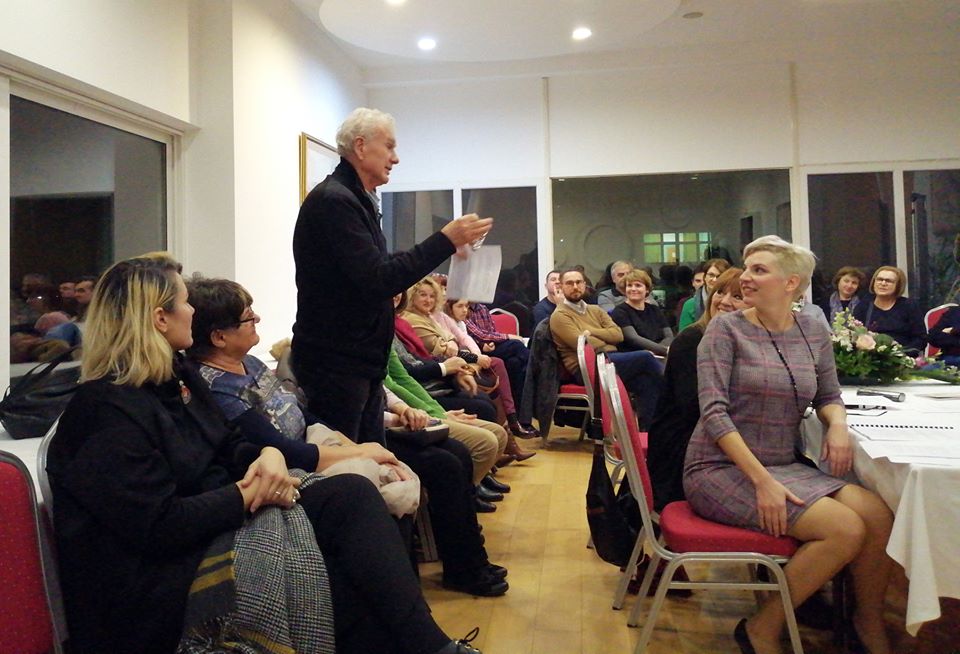
Recommended Posts

Work Package 10 (Dissemination): Final Report
January 2, 2022
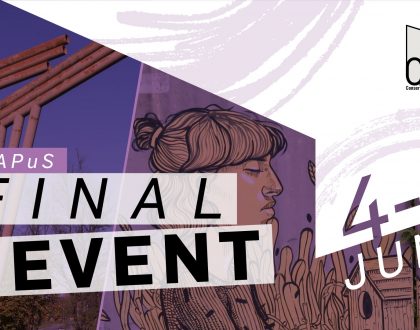
Recordings of the CAPuS final event now available!
July 6, 2021

